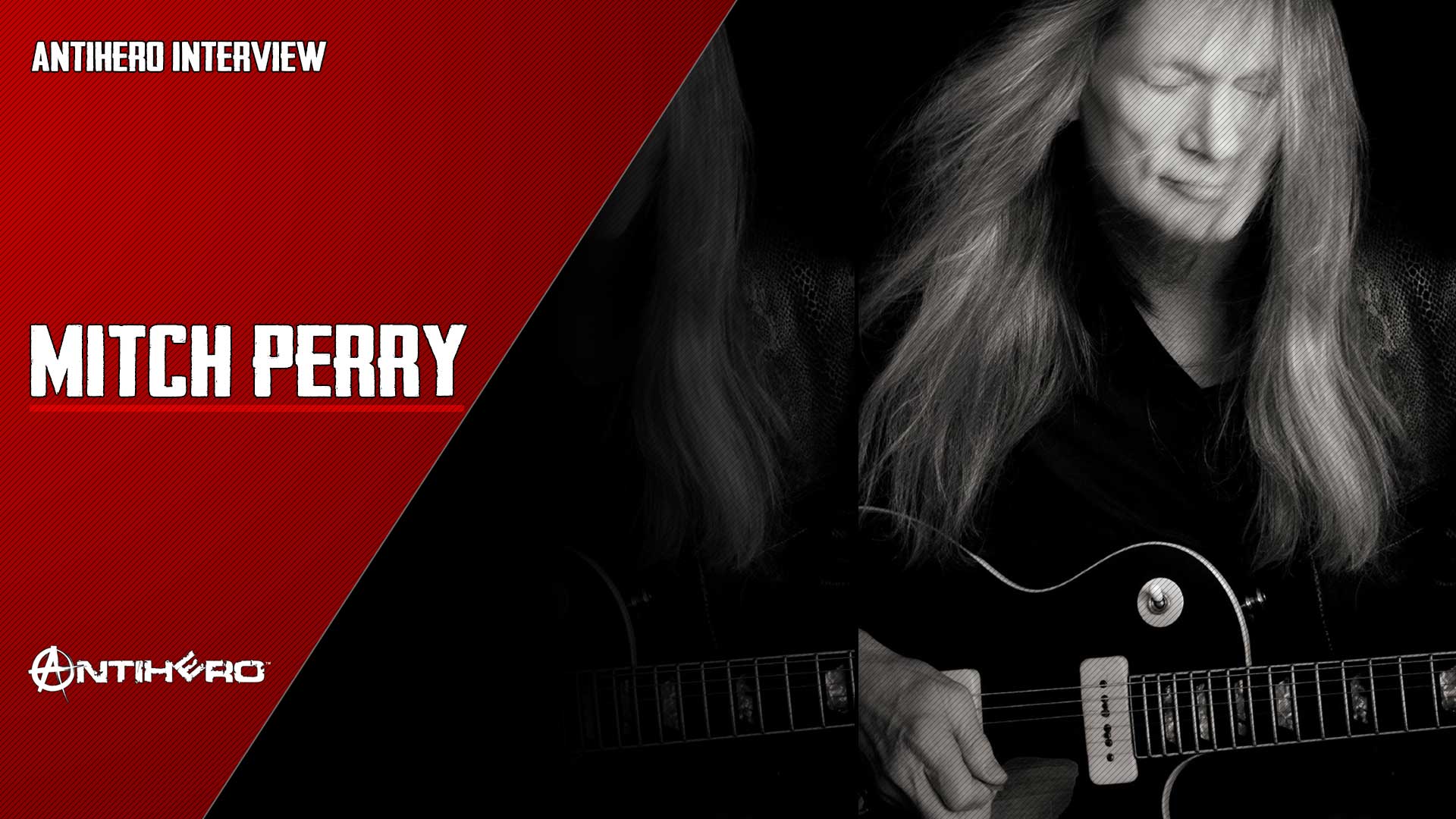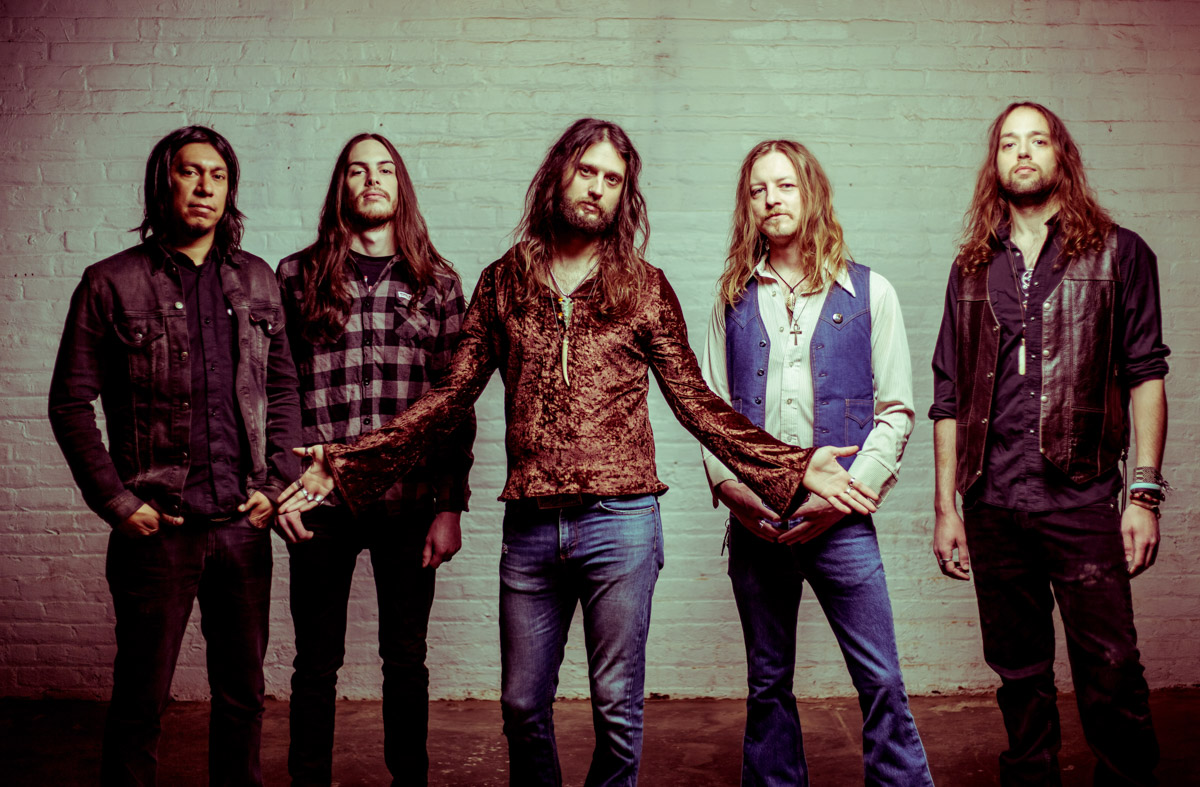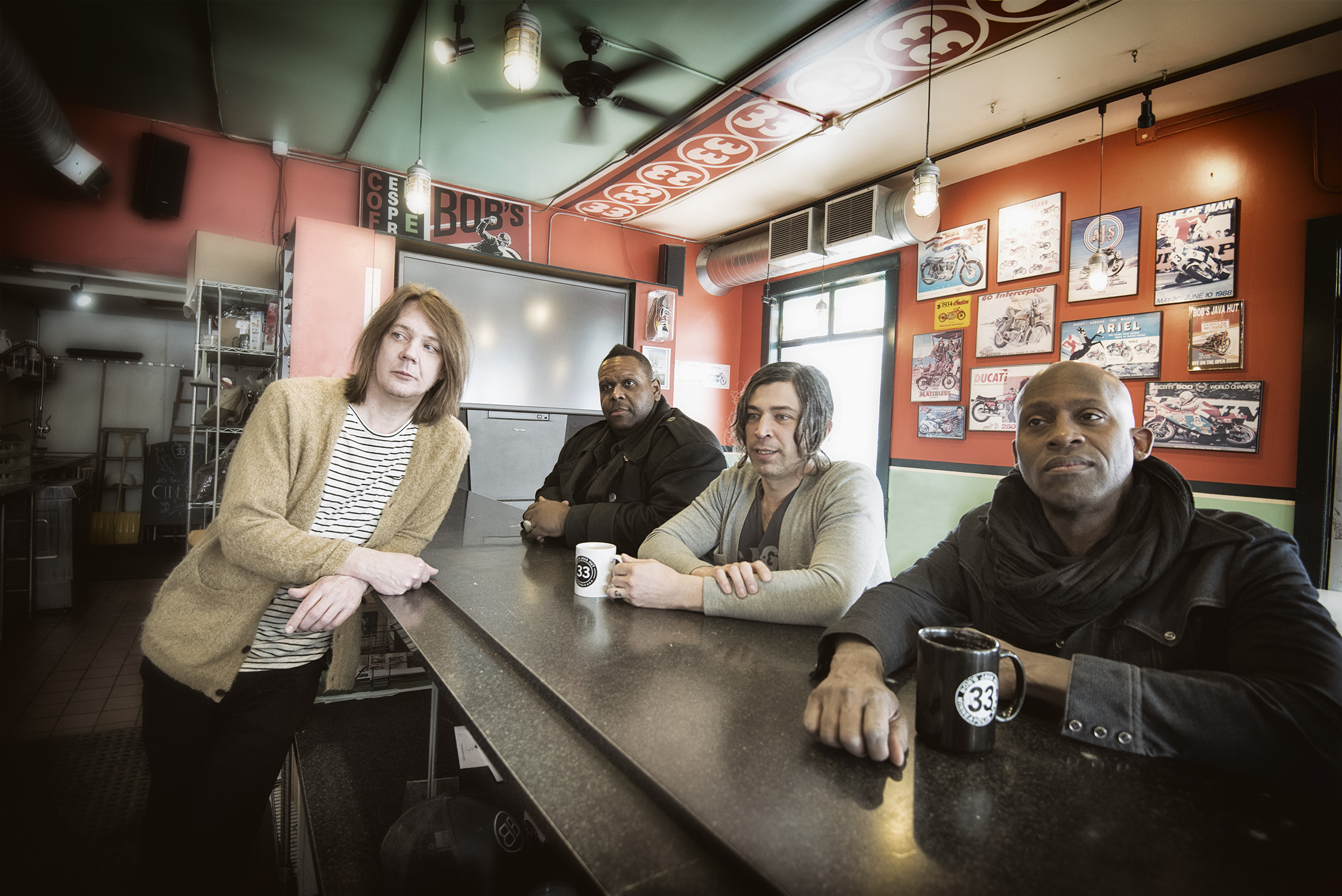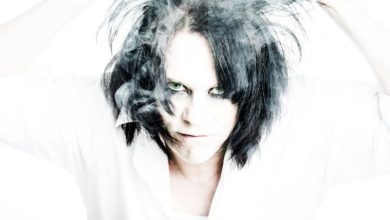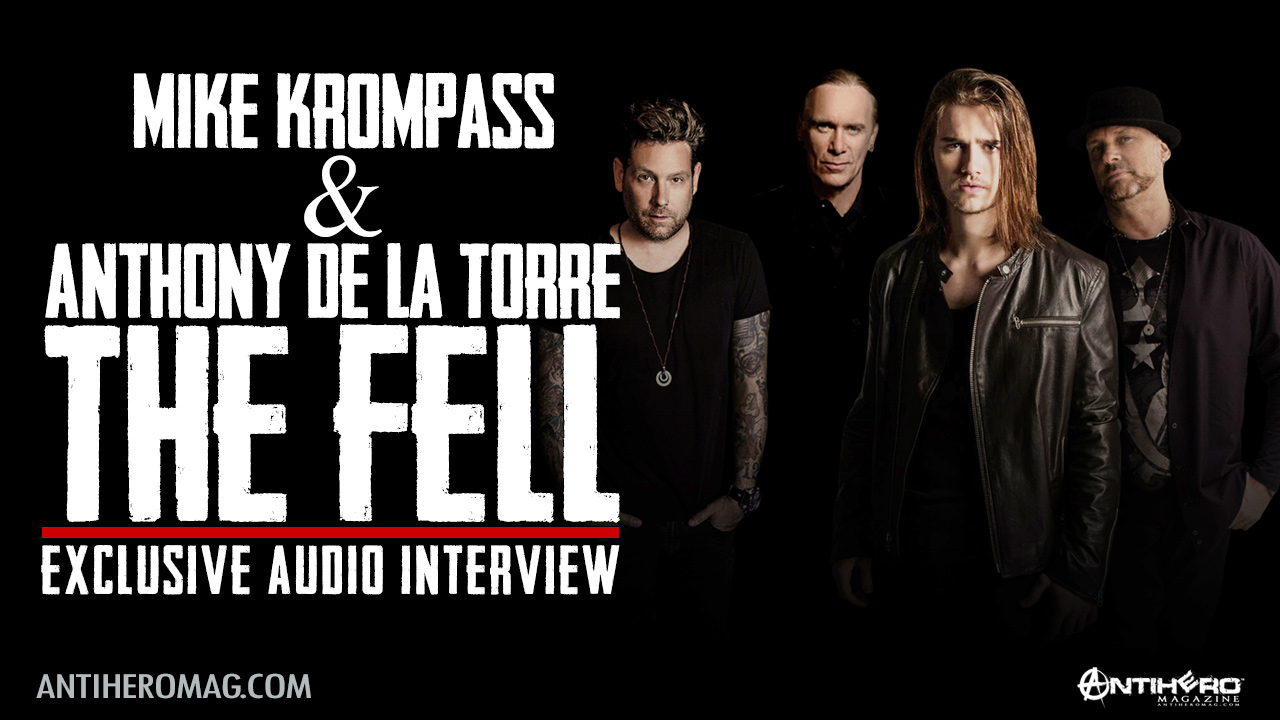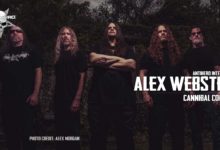Amid a world crisis, L.A. based Mitch Perry, legendary guitarist and songwriter, shines a light of hope on the world. Like everyone else in America, Mitch is following the guidance of shelter in place. Unable to tour, what better time to make a difference and get this song out. This timely message is now, months ahead of his new album release.
“Music has always been medicine for my soul and I hope this song has the same effect on anyone who hears it. Being able to ‘Believe’ brings the hope that everything is going to be alright”, Mitch says.
I had the opportunity to catch up with Mitch and share in his positivity, as well as reviewing his extensive and exalted musical career.
ANTIHERO: How are you doing? How are you getting through the current situation?
Mitch Perry: Basically trying to keep from going nuts sitting in the same house every day. Fortunately, we have a nice place to kind of ride this out, but I mean, I can only imagine how everyone else is feeling. It’s got to be driving everybody crazy. I know it is us.
ANTIHERO: Mitch Perry Group have got a new album coming out. You released a single “Believe”. When was that actually made? It obviously has got a lot of footage of things that are happening in the world at the moment.
Mitch Perry: Okay, the way that happened is I was going to release this record not immediately, as of right now, we were going to put it out in a couple of months. We had just finished mixing it and everything, and the first day of lockdown, I’m listening to Believe and the words are just absolutely spot on for what we’re going through. So I just said basically I called up Ian Fisher, he did the videography of our EPK and I knew he had footage from when we recorded and I said, “Can we go and get file footage and go to this film …” They have like file farms where you can find all sorts of footage for B roll and stuff. And we just, I won’t say we, he found all the shots and put them together and constructed that in a couple of days and it made sense to put it out immediately because of the situation we’re all in.
ANTIHERO: Yeah. It’s a well-done video. Pretty seamless between the studio footage and what’s going on around the world. It’s very well put together.
Mitch Perry: I mean, we’re really blessed to have a great team of people working with us and everything from all the players to the engineers and the video people, and even our album cover. We have an incredible cover from an incredible artist, Glen Wexler. But Ian, going back to the video, he’s just an incredible videographer. He shot a really great EPK for us when we were recording the record, and he just basically managed to put that all together himself. We didn’t edit one thing from his original thing that he showed me.
ANTIHERO: Moving on then to the album itself. For me personally, I only know you from all the heavy rock bands, all those classic bands that you played in, so the album which I’ve been fortunate enough to hear, it’s a complete musical departure. Do you see it as such?
Mitch Perry: Yeah, well, it’s not really a departure because I’ve played on all sorts of records. I mean, from Northern Ireland you’ve got to know Frankie Miller, and I played on Dancing in the Rain back in 1985. I played on Steve Goodman albums, all sorts of different genres of music, and I mean, this to me is pretty much where I grew up. Music’s in the seventies and that’s what I was going for when I put the band together. I really didn’t want it being a quote-unquote metal thing. I want it to be a little bit more organic and just basically go back to straight into the Marshall, and band all playing together at once, take it back to old school, and that’s what we did.
ANTIHERO: What about that inclusion of that Rolling Stone’s song? That’s on there as well. Why pick that to include on the album?
Mitch Perry: Just because the band that I did this with, I play every Sunday when I’m in town at the beach here in Hermosa and we do all sorts of cover tunes, but we turn it around and make them own song. That’s one that I particularly like, and I also sang the second verse in the recording there, so that was the reason we put it on.
ANTIHERO: Just reading over your CV, you have had various job roles over the years: guitarist, keyboardist, producer, driver. Which job role did you actually enjoy the most or is there a bit of something in all of those?
Mitch Perry: Well, I mean as far as everything you stated, there is something to do with music except for the driver, and that’s the way I look at music. Whether I’m playing guitar, keyboards, or producing or whatever, I love it. Driving is another passion of mine. I’ve been around race cars ever since I was a little kid and it’s all I ever wanted to do when I was a kid, even more than play music until I started picking up the guitar, and then I forgot about the car, but it’s still something that is a big part of my life.
ANTIHERO: You’ve played with many, many bands. I wonder if you could just pick out a couple from, as I said, quite an extensive CV. I don’t know if you can tell me a little bit about your experience with some of those bands, how you maybe joined or what’s an outstanding memory of that period of your life?
Mitch Perry: Which band do you want to hear about?
ANTIHERO: There’s so many really. First of all, let’s say Faster Pussycat and Keel, you played on those albums?
Mitch Perry: Yeah, I played on an album. I played on their first record. I played the song Babylon. That’s me on the guitar solo. It’s funny, Taime Downe was my next-door neighbor at the time, and Ric Browde was a good friend of mine from New York when I was living there when I was managed by Leiber and Krebs. So that’s how I wound up on that record.
ANTIHERO: What about the experience with Keel?
Mitch Perry: It was great. I didn’t play with Keel, I played on their album, but I played in Steeler with Ron Keel. I replaced Yngwie in that. Again, great times. I mean it was at the forefront of all the LA metal stuff back then. I mean, so the shows were absolutely great and the band was on fire.
ANTIHERO: You’ve had some big shoes to fill. You mentioned replacing Yngwie and also replaced Randy Rhoads as well.
Mitch Perry: Yeah, I was looking at this, I replaced Randy in the Quiet Riot thing. I mean basically the truth of that is Greg Leon and I did, because there were two guitar players and DuBrow, whereas there’s one guitar player in Quiet Riot. So there’s that, there’s the Yngwie thing, but then a little known fact is I actually replaced Steve Vai in David Lee Roth’s band.
Yeah, I did that for about two weeks and we went our separate ways. It’s funny because I also even replaced Guthrie Govan in John Payne’s Asia and he’s another phenomenal, phenomenal guitar player.
ANTIHERO: You’ve done so many albums in addition to having toured with bands. Do you prefer being in a structured, regular work such as you did with Edgar Winter while you played with him for so many years or do you like dipping into different things just as and when it suits?
Mitch Perry: Yeah. Usually, it’s … I’ve kind of gone back and wondered this over time because I’ve been in a lot of bands. The thing is there’s something about being a sideman that’s fun. It’s always fresh, it’s always exciting, it keeps you on your toes, you’re always learning different stuff, and you don’t get too comfortable in your one genre that you do. Those are the pluses. But I suppose at the end of the day I really want to have my own band and always have. I’ve always … and sometimes this hasn’t always worked out in my favour, but I always want to contribute more than just play guitar. Sometimes it’s a great thing and sometimes they’re not interested.
ANTIHERO: Was it not difficult that period when you’re in MSG playing with Michael Schenker? Did he let you do anything at all guitar-wise?
Mitch Perry: No, he was awesome. The whole way that gig even happened is we were both managed by David Krebs. Basically, when I was doing the Knocking on Heaven’s Door record with Heaven, we were in Record Plant in New York and Michael came down and hung out in the studio. He saw me play keyboards on that record. So, fast-forward a couple of years later, I’ve just left Heaven and I’m in LA, I’m actually hanging out with Pete Way and Johnny Dee, and was talking with guys about joining Waysted, and I happened to be where they were staying at the Oakwood Apartments. That was a place where if you were coming into town to work on a record, your record company would put you up there, so there’s always like four or five bands there and it’s a festive little place at the pool area.
I’m swimming one day and I see Michael Schenker walking up to the pool. He said, “Ah, Mitchy, what are you doing?” I said, “I’m swimming.” He’s like, “We’re looking for a guitar player, keyboard player, maybe you want to do it.” And I said, “Yeah, but I don’t think I want to play rhythm all night.” And he says, “Well you do all this [tapping] stuff.” Then he air guitared some tapping stuff in front of me. He goes, “I don’t do this, but I think people want to hear something.” He says, “It would even sound good on the record. He says, “You want to come try and play on something?” I’m like, “When?” “Right now.” “I’m there, let’s go.” So, I literally got out of the pool and rode up to Sound City with Michael, walked into the studio where Andy Johns and Rob McAuley all were, and none of those guys knew who I was. And Michael says, “Hi everybody, this is Mitch. He’s going to play this solo on Gimme Your Love.
The three of them look at him hard, taking them out of the room. I sit there for about 20 minutes going, “Oh well, this’ll be a nice story one day.” But it actually worked out okay and it was a very, very rewarding two years of my life. I loved playing with Michael. He’s always been one of my favourite guitar players from the time I started playing and so playing beside him was a treat. Not only because I enjoyed the music, but I learned anything I wanted to know. I was watching it done by the best right next to me. I got to … Not so much what you would think. I didn’t say, how do you play this lick? And what do you do? Just understanding how much of his physical self is into the sound. You spend a lot of time as a guitar player going, “Oh, if I only had that magic Marshall or the magic Les Paul or the killer footswitch and I’ll get my tone.” But it’s never that. That’s a Holy grail. You’ll get your tone when your fingers start pushing it out. I learned that by playing on the same rigs that Michael was and his sounded so much better even when I played through the same thing. At the end of the day I had to realise you have to get that sound out of your hands.
ANTIHERO: Are you still actually playing at the moment with the Sweet as well?
Mitch Perry: I am I, well, I mean I am except no one’s playing anywhere right now. That’s a gig that I love to do. I mean Steve Priest has his Sweet here and then Andy has his Sweet in England, so I don’t go, “I’m playing in Sweet,” but I’m playing with Steve Priest from Sweet, and it’s a privilege. I mean, of every band I’ve ever played with, and I mean this from the bottom of my heart, this is my favourite song list from top to bottom. There’s not one song, I don’t look forward to playing on the setlist with them, and the band that we have together just does an awesome job on the songs. It’s a really fun thing and I’m glad that I get to do it.
ANTIHERO: Do they have a big standing in the States?
Mitch Perry: A fair bit. It’s not as big as it should be. I mean, everybody knows the songs. Those are iconic songs, but somewhere between the songs and the name, there’s a disconnect. I mean, so you could put us on stage opening in front of everyone and the entire audience will be thrilled because they’ll recognise songs. But if you tell them Sweet’s playing before any of the acts that they came to see, they might not know who it is.
ANTIHERO: You’ve worked, as I said, with many artists over the years, many legends, many musical legends, who has taught you the most in terms of your musical career? Who has provided the most insight, knowledge for you personally?
Mitch Perry: That is an awesome, great question. I have a definitive answer here, and that’s Edgar Winter. I played with him for almost 10 years and it was the best music school you could ever go to and it was always nonstop learning, and I mean he is just such a phenomenal musician. You think you might surprise him with something, you won’t. There’s nothing the guy doesn’t know or doesn’t understand. Yeah, I mean, I played with him for 10 years. We did three different albums. We’ve done multiple world tours and I think we’ve rehearsed 3 times in those 10 years.
ANTIHERO: Then, of course, to throw a few others into the mix as well, you played on an Aerosmith record as well, and you’ve obviously toured with Cher.
Mitch Perry: Yeah, yeah. The Aerosmith record was the Classics Live record, the blue one, which was the first of the two that came out in the mid-eighties, and I basically just goes to the keyboards on the Live record. I was again managed by David Krebs as Aerosmith was, and Aerosmith split up with Krebs and split with CBS, but they owed him two more albums and Krebs took the live tapes that you hear on the two Classics Live albums out of the vault. Paul O’Neill, who was managing and producing Heaven, was also producing that record, so he asked me to ghost some of the guitars. I went, “No, I wouldn’t feel good about doing that,” but I didn’t really mind doing the keyboards so much, so I got on that. A neat thing to say.
ANTIHERO: Have you ticked all of your musical bucket list, or is there anybody left that you would like to work with and create music with in the future?
Mitch Perry: Let’s see. I mean at this point I’m open to working with anybody. I mean, I stopped really going, oh, I want to work with so and so or I want to work with so and so. Because it almost kind of seems like I have gotten to work with people I’ve wanted to work with her or it ain’t going to happen. I mean, it would be an amazing thing to be able to go back and pick any musician if they weren’t necessarily here. I mean, how cool would it be to get together with Jimi Hendrix? It would be mind-blowing.
ANTIHERO: Any plans to write a book?
Mitch Perry: Only when I never have to work in the music biz again.
ANTIHERO: I’m sure you’ve been asked that many times, though, because you must have some great stories.
Mitch Perry: I do, but I’ll tell you, every time I read one of those books, the amount of details that goes into all the stories they tell. I mean, yeah, I’ve got my few favourite stories, but man, I can’t imagine how anybody remembers half the stuff they say they did when they were in a condition to do half the stuff they say they did.
ANTIHERO: A little bit of creative license maybe thrown in there?
Mitch Perry: Yeah, I’m thinking so, yeah. I mean, there are so many fine details from stuff that happened in the eighties that man, I got to tell you I don’t really have a clue. It’s not, because I don’t have a memory either. I mean, I’ve got a good memory. It’s just, there’s a lot of stuff I guess, a lot of stuff went on. I guess the short answer is that if I have a great co-writer, yes, you might see it.
ANTIHERO: Yeah. Just a final one then, Mitch. I’m sure you’ve done many, many interviews over the years. If the rules were reversed, who would you like to interview?
Mitch Perry: Oh, okay. I guess I would like to interview … This is a tough question off the top of your head. I’d probably interview Jimmy Page. There’s way too much stuff about Zeppelin that I still don’t know that I would like to learn.
ANTIHERO: That’s brilliant. Thank you for chatting. Have a good day.
Mitch Perry: Thank you, Mark. You too.

